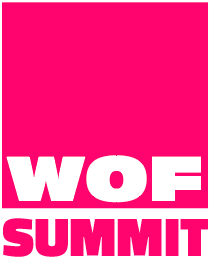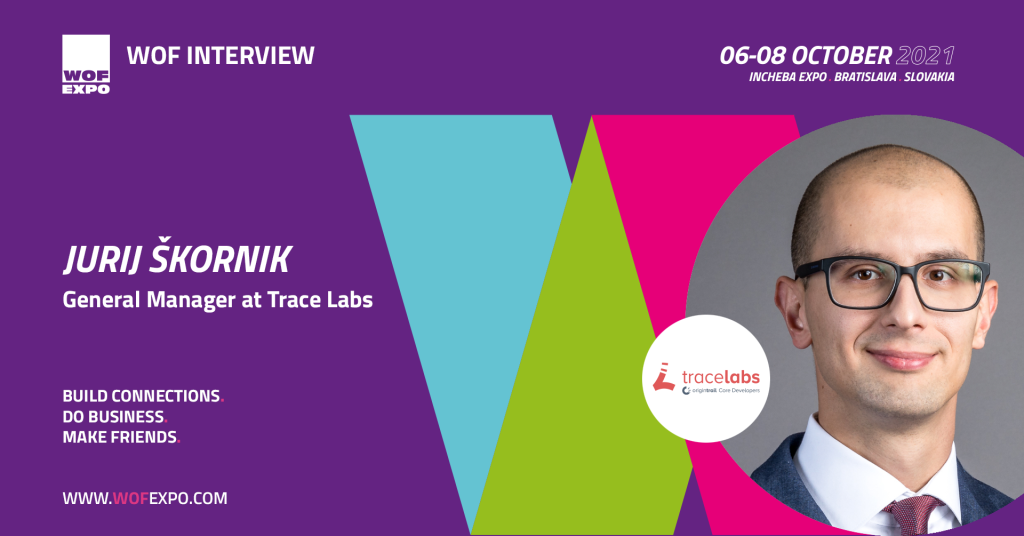Interview with Jurij Škornik
| Mr. Jurij Škornik is the General Manager at Trace Labs – the core team developing the open-source OriginTrail protocol for trusted data exchange. Jurij spent 5 years solving supply chain management challenges for one of the world’s largest logistics providers, Deutsche Post DHL, before joining Trace Labs. As the General Manager, he now leads the most important projects in collaboration with international partners and part of his responsibilities is to develop relationships with key clients for Trace Labs. His long term goal is to make trusted data exchange available to supply chains worldwide. As a consultant, Jurij gained significant experience in a variety of topics, including digitalization, organizational design, logistics operations, IT system implementation, and carve-outs. He is known to be the perfect tester and early-adopter of any tech gadgets. |
| 1. What are the main prerequisites for Blockchain wide adoption? It is becoming increasingly evident that blockchain is not a silver bullet for problems plaguing today’s supply chain networks. However, used in combination with other advanced technologies, blockchain can enable integrity-based, impactful solutions that deliver tangible business value. I see a couple of key elements that blockchain-based solutions need to embrace to facilitate wide-scale adoption: |
- Use of global data standards. Data is the foundation of any supply chain solution, and standards such as GS1 EPCIS (for supply chain event visibility) ensure that data from IT systems of different supply chain stakeholders is interoperable. If data interoperability is not properly considered, blockchain-based solutions won’t deliver the desired business value, and as such won’t be widely adopted.
- Coexistence with legacy IT systems. Replacing IT systems (e.g. ERP, WMS, TMS) is a challenging task for organizations as it is. Getting all players in a supply chain network to use the same IT systems is impossible. Blockchain-based solutions therefore need to enable interconnectivity between IT systems of different supply chain participants by augmenting the existing IT landscape, not ripping and replacing it.
- Simple UX and UI. Last but not least, the ease of building, deploying, and using blockchain-based solutions has a significant impact on how widely they will be adopted. The easier this becomes, the more adoption we will see.
2. Tell us a little bit more about the OriginTrail ecosystem and how it can improve the flow of information within the Supply Chain? OriginTrail combines the power of knowledge graph and blockchain technology, bringing to life the first Decentralized Knowledge Graph (DKG). Knowledge graphs are knowledge bases used by companies such as Google, Amazon, and Facebook to achieve highly linked data structures and derive better business insights. OriginTrail takes knowledge graphs to the next level, enabling their use in cross-organizational environments – an absolute necessity for supply chain networks of today, composed of many different stakeholders. Essentially, OriginTrail DKG allows supply chain partners to share and link data across different organizations and IT systems, utilizing global data standards such as GS1 EPCIS, and W3C Verifiable Credentials. This not only ensures an end-to-end supply chain view, but also significantly increases trust in data, as every part of the DKG can be verified utilizing blockchain – who issued a specific dataset, when, and that the dataset has not been tampered with. OriginTrail DKG is also equipped with comprehensive data access control, allowing supply chain partners to granularly define who has access to what data – i.e data can be made fully public, shared with specific supply chain partners, or completely private. Going a step further, organizations can also monetize their supply chain data with built-in data marketplace mechanisms. This DKG can then be used to power a variety of business applications, ranging from track and trace and compliance verification, to business intelligence, and many more. 3. Would you be able to share some use cases enabled by the OriginTrai Decentralized Knowledge Graph? OriginTrail DKG is already powering several supply chain solutions around the world. For example, together with our partner the British Standards Institution (BSI) we implemented the SCAN Trusted Factory solution. SCAN is an association of the largest US retailers (e.g. Walmart, Target, Home Depot, etc.) that are sharing supply chain security audit data to reduce audit fatigue for their factories across Asia. Critical data points of those security audits are secured on the OriginTrail DKG and can be made available for verification to government agencies such as the US Customs and Border Protection (CBP) and its Customs-Trade Partnership Against Terrorism (CTPAT) program. With these security audits being a requirement for importing goods into the US, SCAN Trusted Factory program facilitates the import process. Another great use case is the Monasterevin whiskey distillery in Ireland. The distillery wanted to provide “grain-to-glass” transparency to their consumers. To achieve this, data from all stages of their supply chain – farming, malting, distilling, warehousing, and bottling – is secured and linked on the OriginTrail DKG. This enables consumers to get a detailed insight into the ingredients that went into the bottle of whiskey they purchased. There are several other exciting projects utilizing OriginTrail DKG being implemented, including the Trusted Bytes project which aims to facilitate crossing of goods across the UK border, and a project focusing on transparency in pharmaceutical supply chains. 4. What is your opinion about positioning WOF EXPO in the Central and Eastern European region? Having the WOF EXPO in the CEE region is definitely a great way to connect the regions’ key industry players with state-of-the-art supply chain solution providers. The CEE region is home to a number of innovative companies, and it is through events like these that impactful partnerships can be established. I am looking forward to connecting with the event participants and seeing how we can bring innovation to supply chains, together. |
 |
Trace Labs is a blockchain company developing enterprise solutions for trusted data exchange across the supply chain. Their solutions enable forward-thinking organizations to gain the most knowledge possible and make better decisions based on interconnected data from their supply chains. Trace Labs is also the core development company of the open-source OriginTrail protocol for blockchain-based inter-organizational data exchange. Their solutions powered by OriginTrail provide business communities with a bundle of enterprise applications, focusing on quick implementation, great user experience, and interoperability with legacy systems to help solve their business challenges.
tracelabs.io |

